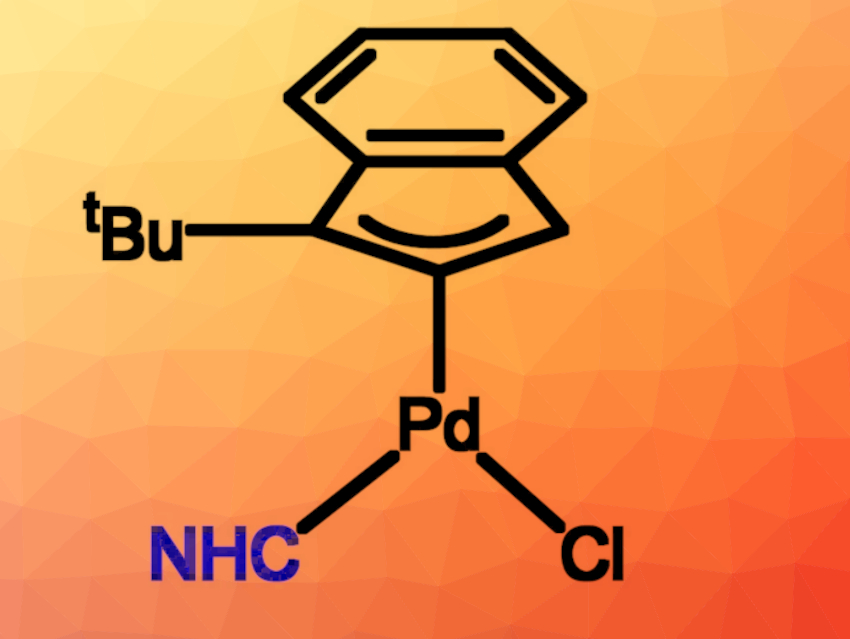The high catalytic activity of well-defined palladium–NHC complexes (NHC = N-heterocyclic carbene) is useful in the synthesis of, e.g., pharmaceuticals, fine chemicals, polymers, and organic building blocks. Simple and sustainable synthetic strategies leading to these catalysts are, thus, interesting research targets.
Catherine S. J. Cazin, Steven P. Nolan, Ghent University, Belgium, and colleagues have developed a simple and environmentally friendly synthetic protocol leading to [Pd(NHC)Cl(1-tBu-indenyl)] complexes (pictured) that can be used as pre-catalysts for cross-coupling reactions. The team reacted NHC⋅HCl salts with a palladium precursor of the type [Pd(1-tBu-indenyl)(μ-Cl)]2 (pictured below) in the presence of a weak base (K2CO3), operating under aerobic conditions and using “green” acetone as a solvent.
.jpg)
Based on this approach, the team prepared air- and moisture-stable complexes bearing various NHC ligands. The palladium complexes display excellent catalytic activity in Buchwald–Hartwig and classical and non-classical Suzuki-Miyaura cross-coupling reactions.
- A Simple Synthetic Route to Well‐Defined [Pd(NHC)Cl(1‐tBu‐indenyl)] Pre‐catalysts for Cross‐Coupling Reactions,
Yaxu Liu, Thomas Scattolin, Alberto Gobbo, Marek Beliš, Kristof Van Hecke, Steven P. Nolan, Catherine S. J. Cazin,
Eur. J. Inorg. Chem. 2021.
https://doi.org/10.1002/ejic.202100840




